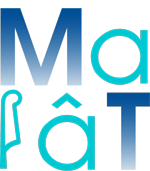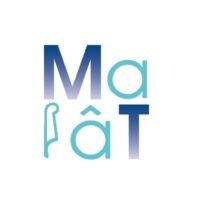MaaT Pharma Presents Promising Clinical Data from 76 Patients with Acute Graft-vs-Host-Disease Treated with MaaT013 at 63rd ASH Annual Meeting
- Oral presentation at 63rd American Society of Hematology Annual Meeting includes results from the HERACLES Phase 2 trial in 24 patients with steroid-resistant Grade III-IV gastrointestinal acute Graft-versus-Host Disease (GI-aGvHD) and from a compassionate use program (Early Access Program or EAP) for MaaT013 in France in 52 patients with Grade II-IV GI-aGvHD having failed previous therapies
- GI-Overall Response Rate (GI-ORR) to MaaT013 at 28 days was 38% in HERACLES trial, including 5 complete responses (21%), and 58% in EAP, including 17 complete responses (33%)
- Best GI-ORR at day 28 was 54% in HERACLES and 67% in EAP
- 12-month overall survival in patients that responded to treatment was 44% in HERACLES and 59% in EAP
- Pivotal Phase 3 clinical trial of MaaT013 in aGvHD is being initiated
Lyon, France, December 11, 2021 9:00pm CET – MaaT Pharma (EURONEXT: MAAT – the “Company“), a French clinical-stage biotech and a pioneer in the development of microbiome-based ecosystem therapies dedicated to improving survival outcomes for patients with cancer, announced today additional data from its Phase 2 clinical trial HERACLES (NCT03359980) as well as from its compassionate use (EAP) program in France for MaaT013, its high-richness, high-diversity lead microbiome ecosystem therapy (MET). The data showed that MaaT013 treatment in patients that developed acute Graft-versus-Host-Disease with gastrointestinal involvement (GI-aGvHD) following hematopoietic cell transplantation demonstrated promising objective gastro-intestinal response rate (GI-ORR)[1] in both groups. The primary endpoint of GI-ORR at day 28 was 38% in HERACLES and 58% in EAP patients, respectively. The secondary endpoint of best GI-ORR at day 28 was 54% in HERACLES and 67% in EAP patients, respectively. The clinical benefit seen with MaaT013 administration positively impacted overall survival (OS) rates of patients that responded to the treatment: OS at 12 months in responders was 44% in HERACLES patients and 59% in EAP patients. MaaT013 was also well tolerated in this heavily immunocompromised patient population.
The data was presented in an oral format by Dr. Florent Malard, Hematologist at the Saint-Antoine Hospital and Associate Professor at Sorbonne University in Paris, France during the 63rd ASH annual meeting on Saturday, December 11 at 2:45 pm EST / 8:45 pm CET.
“The positive clinical outcomes following treatment with MaaT013 are highly encouraging. MaaT013 continues to show promise as a treatment option for patients with acute GvHD, a devastating disease with very low long-term survival if steroid administration fails,” said Prof. Mohamad Mohty, Professor and head of the Hematology and Cellular Therapy Department at the Saint-Antoine Hospital and Sorbonne University. “The survival rate observed in patients treated with MaaT013 is also highly encouraging, both in the Phase 2 clinical trial in very severe patients and the compassionate use program, which shows an overall clear impact with MaaT013 treatment.”
“This data strongly supports our hypothesis that restoring gut microbiome diversity can significantly impact survival outcomes in aGvHD patients. These results move us closer to providing MaaT013 to patients with no other treatment options,” added John Weinberg, MD, Chief Medical Officer of MaaT Pharma. “Based on the clinical benefit observed with MaaT013 in 76 patients with this rare disease, we are looking forward to initiating a pivotal Phase 3 study with MaaT013 as a third line treatment in patients with GI-aGvHD. To date, we have received positive feedback from two European regulators and will communicate in due course when we include the first patient in the trial.”
Key clinical findings with MaaT013 in Phase 2 study HERACLES
In HERACLES, 24 patients with Grade III-IV, steroid-resistant, gastrointestinal aGvHD were treated with MaaT013 as a second line therapy
- 9 out of 24 patients (38%) showed objective GI response at day 28, of which 5 patients (21%) had a complete response, 2 patients (8%) had a very good partial response, and 2 patients (8%) showed a partial response.
- Best GI-ORR at day 28 was 54% (13 patients), including 38% (9 patients) complete response.
- Overall survival (OS) in responding patients at the 12-month follow-up was 44%, compared to 13% in non-responders (OS in all included patients was 25% at 12 months).
- Treatment with MaaT013 was well tolerated with the majority of Treatment-Emergent Adverse Events (TEAE) reported as being infections and gastrointestinal disorders, which are expected for GvHD patients.
- In responders and right after the first dose, treatment with MaaT013 significantly increased the alpha-diversity of the microbiota, i.e., the number of different microbial species.
Key clinical findings with MaaT013 in compassionate use in France (Early Access Program or ‘EAP’)
In the EAP, 52 patients with steroid-dependent or steroid-resistant, Grade II-IV, gastrointestinal aGvHD were treated with MaaT013
- 30 out of 52 patients (58%) showed objective responses of which 17 patients (33%) had a complete response, 9 patients (17%) had a very good partial response, and 4 patients (8%) showed a partial response.
- Best GI-ORR at day 28 was 67% (35 patients), including 40% (21 patients) with a complete response.
- Overall survival (OS) in responding patients at the 12-month follow-up was 59%, compared to 7% in non-responders (OS in all included patients was 38% at 12 months).
- At the time of treatment, all patients had either Grade II (6%) or Grade III (94%) aGvHD
- Patients received MaaT013 after 1 to 6 (median: 3) lines of treatment. 43 out of 52 patients (83%) were steroid resistant and 40 out of 52 (77%) had failed to respond to ruxolitinib.
[1] ORR Includes complete responses (CR), very good partial responses (VGPR) and partial responses (PR)
About MaaT013
MaaT013 is a full-ecosystem, off-the-shelf, standardized, pooled-donor, Microbiome Ecosystem Therapy. It is characterized by a consistently high diversity and richness of microbial species and the presence of ButycoreTM (group of bacterial species known to produce anti-inflammatory metabolites). MaaT013 aims to restore the symbiotic relationship between the patient’s functional gut microbiome and their immune system to correct the responsiveness and tolerance of immune functions and thus reduce steroid-resistant, gastrointestinal-predominant aGvHD. MaaT013 has been granted Orphan Drug Designation by the US Food and Drug Administration (FDA) and the European Medicines Agency (EMA). MaaT013 was investigated in a Phase 2 clinical trial (HERACLES, NCT03359980) and is being administered in an early access program in France
About MaaT Pharma
MaaT Pharma, a clinical stage biotechnology company, has established a complete approach to restoring patient-microbiome symbiosis in oncology. Committed to treating cancer and graft-versus-host disease (GvHD), a serious complication of allogeneic stem cell transplantation, MaaT Pharma has already achieved proof of concept in a Phase II clinical trial in acute GvHD. Our powerful discovery and analysis platform, gutPrint®, supports the development and expansion of our pipeline by determining novel disease targets, evaluating drug candidates, and identifying biomarkers for microbiome-related conditions.
The company’s Microbiome Ecosystem Therapies are produced through a standardized cGMP manufacturing and quality control process to safely deliver the full diversity of the microbiome, in liquid and oral formulations. MaaT Pharma benefits from the commitment of world-leading scientists and established relationships with regulators to support the integration of the use of microbiome therapies in clinical practice.
MaaT Pharma is listed on Euronext Paris (ticker: MAAT).

Forward-looking Statements
All statements other than statements of historical fact included in this press release about future events are subject to (i) change without notice and (ii) factors beyond the Company’s control. These statements may include, without limitation, any statements preceded by, followed by or including words such as “target,” “believe,” “expect,” “aim,” “intend,” “may,” “anticipate,” “estimate,” “plan,” “project,” “will,” “can have,” “likely,” “should,” “would,” “could” and other words and terms of similar meaning or the negative thereof. Forward-looking statements are subject to inherent risks and uncertainties beyond the Company’s control that could cause the Company’s actual results or performance to be materially different from the expected results or performance expressed or implied by such forward-looking statements.




